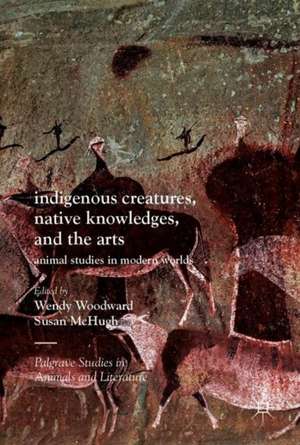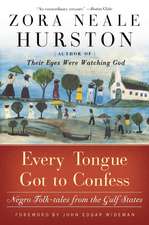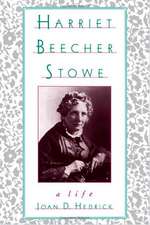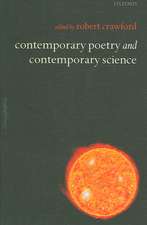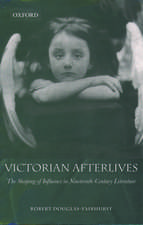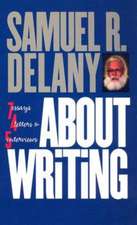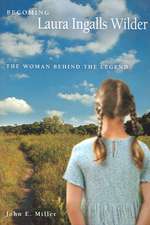Indigenous Creatures, Native Knowledges, and the Arts: Animal Studies in Modern Worlds: Palgrave Studies in Animals and Literature
Editat de Wendy Woodward, Susan McHughen Limba Engleză Hardback – 27 oct 2017
| Toate formatele și edițiile | Preț | Express |
|---|---|---|
| Paperback (1) | 628.96 lei 39-44 zile | |
| Springer International Publishing – 9 sep 2018 | 628.96 lei 39-44 zile | |
| Hardback (1) | 699.77 lei 6-8 săpt. | |
| Springer International Publishing – 27 oct 2017 | 699.77 lei 6-8 săpt. |
Din seria Palgrave Studies in Animals and Literature
- 18%
 Preț: 783.98 lei
Preț: 783.98 lei - 18%
 Preț: 893.21 lei
Preț: 893.21 lei - 18%
 Preț: 944.82 lei
Preț: 944.82 lei - 15%
 Preț: 696.02 lei
Preț: 696.02 lei - 18%
 Preț: 727.31 lei
Preț: 727.31 lei - 15%
 Preț: 589.51 lei
Preț: 589.51 lei - 18%
 Preț: 786.18 lei
Preț: 786.18 lei - 18%
 Preț: 785.42 lei
Preț: 785.42 lei - 18%
 Preț: 785.11 lei
Preț: 785.11 lei - 18%
 Preț: 724.17 lei
Preț: 724.17 lei - 15%
 Preț: 699.28 lei
Preț: 699.28 lei - 18%
 Preț: 779.08 lei
Preț: 779.08 lei - 15%
 Preț: 585.08 lei
Preț: 585.08 lei - 15%
 Preț: 525.99 lei
Preț: 525.99 lei - 15%
 Preț: 585.90 lei
Preț: 585.90 lei - 18%
 Preț: 784.48 lei
Preț: 784.48 lei - 18%
 Preț: 783.05 lei
Preț: 783.05 lei - 15%
 Preț: 526.35 lei
Preț: 526.35 lei - 18%
 Preț: 891.02 lei
Preț: 891.02 lei - 18%
 Preț: 784.13 lei
Preț: 784.13 lei -
 Preț: 383.50 lei
Preț: 383.50 lei - 15%
 Preț: 586.88 lei
Preț: 586.88 lei - 18%
 Preț: 892.59 lei
Preț: 892.59 lei - 18%
 Preț: 1131.56 lei
Preț: 1131.56 lei - 15%
 Preț: 588.18 lei
Preț: 588.18 lei - 15%
 Preț: 576.06 lei
Preț: 576.06 lei - 15%
 Preț: 585.57 lei
Preț: 585.57 lei - 15%
 Preț: 694.22 lei
Preț: 694.22 lei - 18%
 Preț: 785.11 lei
Preț: 785.11 lei - 18%
 Preț: 899.21 lei
Preț: 899.21 lei - 18%
 Preț: 732.07 lei
Preț: 732.07 lei - 18%
 Preț: 897.14 lei
Preț: 897.14 lei - 18%
 Preț: 894.46 lei
Preț: 894.46 lei -
 Preț: 384.86 lei
Preț: 384.86 lei
Preț: 699.77 lei
Preț vechi: 823.26 lei
-15% Nou
Puncte Express: 1050
Preț estimativ în valută:
133.90€ • 140.09$ • 111.23£
133.90€ • 140.09$ • 111.23£
Carte tipărită la comandă
Livrare economică 03-17 aprilie
Preluare comenzi: 021 569.72.76
Specificații
ISBN-13: 9783319568737
ISBN-10: 3319568736
Pagini: 307
Ilustrații: XIV, 275 p. 22 illus.
Dimensiuni: 148 x 210 mm
Greutate: 0.5 kg
Ediția:1st ed. 2017
Editura: Springer International Publishing
Colecția Palgrave Macmillan
Seria Palgrave Studies in Animals and Literature
Locul publicării:Cham, Switzerland
ISBN-10: 3319568736
Pagini: 307
Ilustrații: XIV, 275 p. 22 illus.
Dimensiuni: 148 x 210 mm
Greutate: 0.5 kg
Ediția:1st ed. 2017
Editura: Springer International Publishing
Colecția Palgrave Macmillan
Seria Palgrave Studies in Animals and Literature
Locul publicării:Cham, Switzerland
Cuprins
Editors’ introduction: Wendy Woodward and Susan McHugh.- Chapter 1 Qing and the animals of the Drakensberg-Maloti: Michael Wessels.- Chapter 2 //Kabbo sings the animals: Dan Wylie.- Chapter 3 Interrogating the sacred art of Vetkat Regopstaan Boesman Kruiper: Richard Alan Northover.- Chapter 4 Spirit guards: A squad of ceramic dogs in South Africa: Nicolene Swanepoel.- Chapter 5 Tricksters, animals, new materialities, and indigenous wisdoms: Delphi Carstens.- Chapter 6 The porosity of human/ nonhuman beings in Neil Gaiman’s American Gods and Anansi Boys: Alexandra Wheeler.- Chapter 7 Animated animals: Allegories of transformation in Khumba: Hermann Wittenberg.- Chapter 8 Magic wells, the stream, and the flow: The promise of literary animal studies: Marion Copeland.- Chapter 9 Border crossings: Animals, tricksters, and shape-shifters in modern Native American fiction: Daniel G. Payne.- Chapter 10 I'm mad you’re mad we are all mad: The Alice Diaries: Wilma Cruise.- Chapter 11 ‘The only facts are supernatural ones’: Dreaming animals and trauma in some contemporary Southern African texts: Wendy Woodward.- Chapter 12 Cross-pollinating: Indigenous Knowledges of Extinction and Genocide in Honeybee Fictions: Susan McHugh.- Index.
Notă biografică
Susan McHugh is the author of Animal Stories: Narrating across Species Lines (2011) as well as Dog (2004). She co-edited The Routledge Handbook of Human-Animal Studies (2014), and Literary Animals Look, a special issue of Antennae: The Journal of Nature in Visual Culture (2013).
Wendy Woodward is the author of The Animal Gaze: Animal Subjectivities in Southern African Narratives (2008). She co-edited a special issue of Journal of Literary Studies entitled Figuring the Animal in Post-apartheid South Africa (2014) and has published three volumes of poetry.
Wendy Woodward is the author of The Animal Gaze: Animal Subjectivities in Southern African Narratives (2008). She co-edited a special issue of Journal of Literary Studies entitled Figuring the Animal in Post-apartheid South Africa (2014) and has published three volumes of poetry.
Textul de pe ultima copertă
‘Traditionally, important books concerning animals report scientific views. Indigenous Creatures, Native Knowledge, and the Arts is an important book concerning animals that reports artistic views held by a wide array of people from a variety of cultures. Considering that art was the method used by the earliest members of our species to represent animals, this says a great deal about us and our biophilic views. It’s fascinating, and no wonder, as we all have some desire to connect with other species, and we can rely on this book, which is written with scholarly care.’
— Elizabeth Marshall Thomas, author of The Harmless People, The Hidden Life of Dogs, and The Animal Wife, USA
This volume illuminates how creative representations remain sites of ongoing struggles to engage with animals in indigenous epistemologies. Traditionally imagined in relation to spiritual realms and the occult, animals have always been more than primitive symbols of human relations. Whether as animist gods, familiars, conduits to ancestors, totems, talismans, or co-creators of multispecies cosmologies, animals act as vital players in the lives of cultures. From early days in colonial contact zones through contemporary expressions in art, film, and literature, the volume’s unique emphasis on Southern Africa and North America – historical loci of the greatest ranges of species and linguistic diversity – help to situate how indigenous knowledges of human-animal relations are being adapted to modern conditions of life shared across species lines.
Wendy Woodward is the author of The Animal Gaze: Animal Subjectivities in Southern African Narratives (2008). She co-edited a special issue of Journal of Literary Studies entitled Figuring the Animal in Post-apartheid South Africa (2014) and has published three volumes of poetry.
Susan McHugh is the author of Animal Stories: Narrating across Species Lines (2011) as well as Dog (2004). She co-edited The Routledge Handbook of Human-Animal Studies (2014), and Literary Animals Look, a special issue of Antennae: The Journal of Nature in Visual Culture (2013).
Susan McHugh is the author of Animal Stories: Narrating across Species Lines (2011) as well as Dog (2004). She co-edited The Routledge Handbook of Human-Animal Studies (2014), and Literary Animals Look, a special issue of Antennae: The Journal of Nature in Visual Culture (2013).
Caracteristici
Interdisciplinary - brings together work from a range of creative areas such as art history and literature Features examples from the nineteenth through the twenty-first centuries Explores the roots of the struggle in colonial contact zones, where the stakes include conceptual as much as physical survival Includes supplementary material: sn.pub/extras
